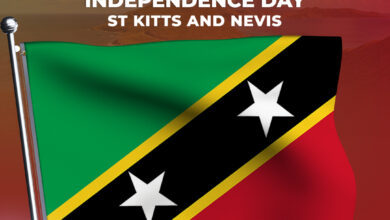Mr. Chairman and Host Minister, Hon. Ralph Fonseca
Rt. Hon. Denzil Douglas, Prime Minister of St. Kitts and Nevis
Regional Ministers
Members of the Diplomatic Corps
Representatives of International and Regional Organisations
Distinguished Guests
Friends of the Media
Ladies and Gentlemen
It gives me great pleasure to be once again in Belize, my third visit in eight months, this time on the occasion of the Fourth Meeting of the Council for Finance and Planning (COFAP). This Meeting was originally scheduled for last September but Hurricane Keith decided otherwise. We are glad to see that four months later the country has recovered sufficiently from the tremendous physical destruction and tragic loss of life so as to be able to host this event, and the other Ministerial Meetings scheduled to be held here during this week. Belize continues to play an increasingly important role in the development of CARICOM.
Indeed, I am aware that as early as November last, Belize was already able to host the Third Meeting of the Assembly of Caribbean Community Parliamentarians.
This COFAP Meeting is occurring at a critical juncture in the march towards a CARICOM Single Market and Economy. Last November, the Second Special Consultation on the CSME was held in Barbados and a number of important decisions were taken which require endorsement by the Conference of Heads of Government. Among them was the creation of a Prime Ministerial Sub-Committee on the CSME. Earlier this month in Georgetown, the Council for Trade and Economic Development (COTED) devised an Action Plan with respect to the decisions taken at the Barbados Consultation. This Action Plan includes an implementation strategy for the early removal of the already identified restrictions on the intra-regional movement of capital. It also involves the convening next April of a Joint Ministerial Meeting of the COTED, the COFAP and the COHSOD. This current Meeting today of the COFAP is designed to provide further substantive and analytical guidance to the CSME strategy.
In this regard, I am pleased to learn that, at the Preparatory Meeting of the COFAP Officials last Friday, under the able Chairmanship of Mr. Joseph Waight, Financial Secretary, Ministry of Finance, Belize, considerable progress was made on the key issue of macro-economic policy coordination in the Region, particularly as it relates to monetary convergence and financial sector integration. Our task today has therefore been made much easier.
Mr. Chairman, while we struggle to achieve economic integration and progress at the regional level, forces at the global level are continually threatening to destabilise the process. In addition to the difficulties posed for us by the perennial WTO compatibility problem, the Caribbean has been afflicted in the last two years with the OECD ‘Harmful Tax Competition’ issue described by some as a bug as powerful as the HIV/AIDS virus.
Following the outcome of the recent OECD/Non-OECD/Commonwealth Consultation in Barbados, this Meeting of the COFAP needs to formulate a strategy which will guide representatives of the two Caribbean countries – Antigua and Barbuda and Barbados which will be representing CARICOM on the newly created 13-man Global Tax Force (consisting of six OECD and seven non-OECD countries) in the deliberations in London at the end of this week. The agreement of the OECD to the decision at the Barbados Meeting “to find a mutually acceptable process”, by which the principles of transparency, non-discrimination and effective exchange of information could be turned into commitments, constitutes a significant reversal of its earlier unilateral approach and threats of sanctions. However, there is need for much more technical work and for continued vigilance on the part of the Region, especially by the Officials directly engaged in the dialogue and negotiations, to guard against any rolling back. For it is only after the end of the Second High Level Consultations in Tokyo, planned for 15-16 February, that we shall begin to know how serious the OECD is about reaching a compromise on the issue.
Many other important issues crucial to the development of the Caribbean Community find themselves on today’s agenda of this important Caribbean Community Organ. It is an opportunity that must not be squandered.
I would therefore like to wish today’s Meeting of the COFAP a most successful outcome
I thank you for your presence and for your attention.





